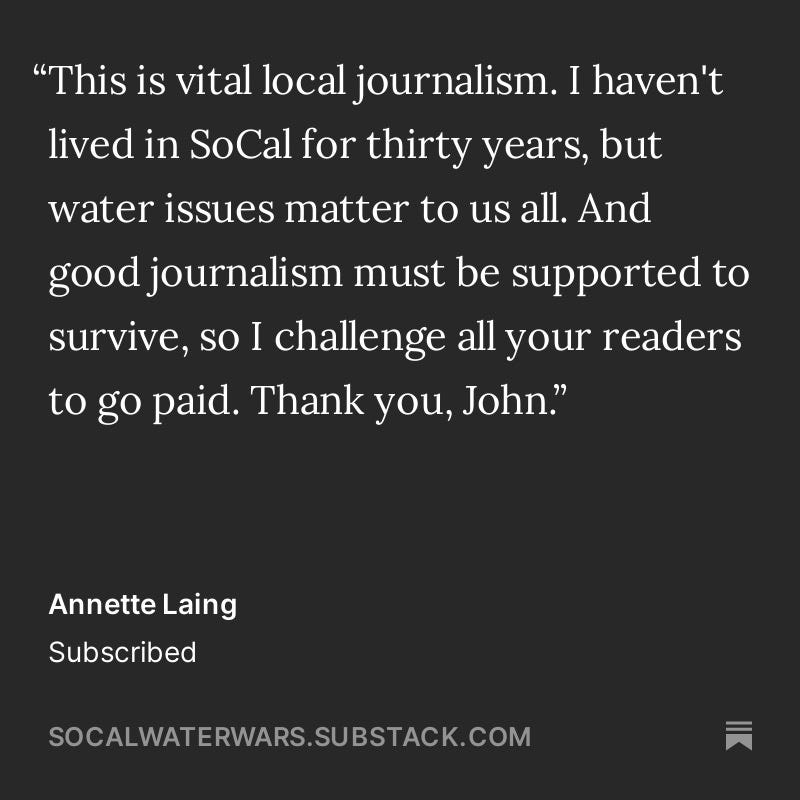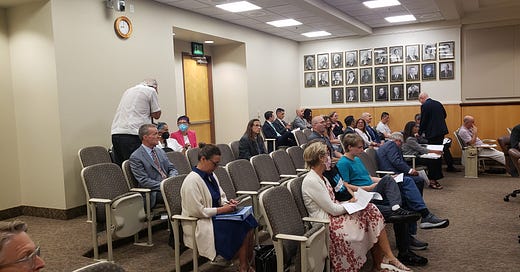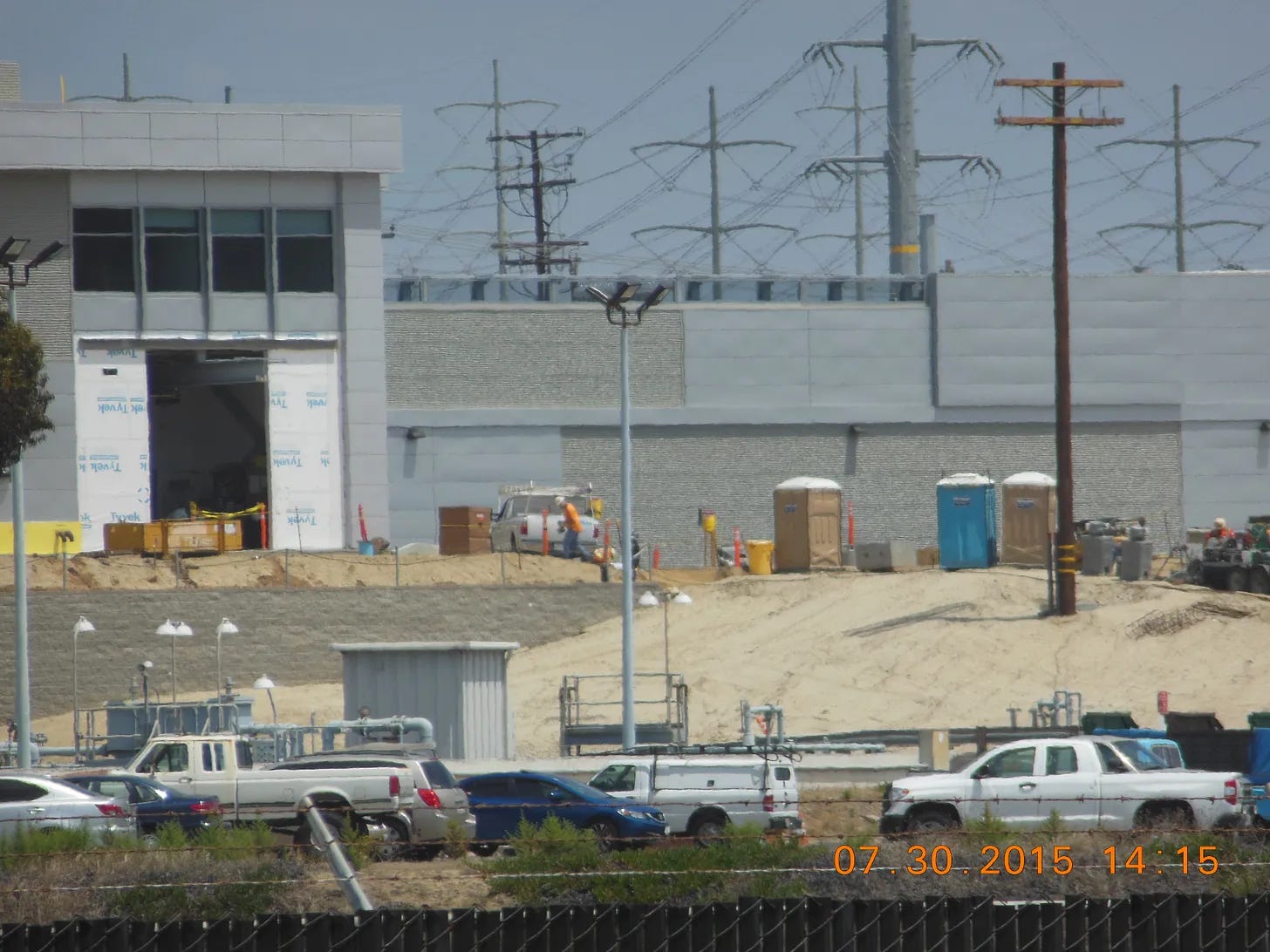Carlsbad ocean desalination: private profit vs. public ownership of water
Privatization puts profit above the public's welfare. The Carlsbad plant is a public-private partnership that favors investors.
Poseidon Water’s ocean desalination proposals for Huntington Beach and Carlsbad in the early 2000s were an outgrowth of efforts by multinational corporations (backed by “free trade” treaties and austere international banking policies) to privatize or partner with publicly owned water systems around the world.
Sierra Club attorney Mark Massara warned at the time that approval of Poseidon’s plans will set a dangerous legal precedent.
“In California and the coastal zone Poseidon is the very first [proposed-private] residential desalination facility”, he told me in 2009. “And that is a marked departure from the entire history under the Coastal Act.”
In practice, according to critics, free-trade policies imposed privatization upon other nations and by-passed unions and environmental regulations to help foreign investors like Poseidon exploit workers, consumers and publicly owned resources.
In separate reports, the Coastal Commission staff and the National Association of Attorney Generals raised serious concerns about the effects of international trade treaties on the ability of state and local governments to force multinational corporations to obey their laws.
Those concerns were quickly brushed aside by the Huntington Beach City Council during passage of Poseidon’s Environmental Impact Reports in 2005 and 2006 after company representatives said it was not a multinational corporation and the council majority accepted that claim at face value.
In fact, Poseidon promoted itself as the “largest private developer/investor of water treatment facilities in Mexico,” where it had operated for over a decade, which made the Stamford CT. firm multinational by definition.
Poseidon’s Huntington Beach desalination proposal was soundly defeated by the California Coastal Commission in 2022. It’s Carlsbad plant was approved in 2013 and has operated since 2015.

During that history, free-trade issues were never tested, at least in part because Poseidon co-opted trade-union leaders by offering temporary construction jobs at prevailing wages and by funding the campaigns of politicians of both major parties who oversaw the regulatory process—a strategy that seemed to work but ended up delaying the project’s ultimate defeat.
Public vs. private
Public ownership of water systems is based on the Public Trust Doctrine, a centuries old legal concept that sees access to water as a universal human right based on public ownership for the common good.
Federal and state laws, including the California Coastal Act, treat ocean water as a part of the public commons that must be used primarily for non consumptive uses.
One purpose “does not necessarily impair its ability to be used for others,” according to a 2004 analysis by the California Coastal Commission’s research staff. In contrast, privatization is a process that treats water as a needed commodity to be sold for private profit first rather than to fulfill a human right.
The Reasonable Use Doctrine
The Reasonable Use Doctrine is the guide for all environmental protection laws and policies at all levels of government in California. It was added as Article 10, Section 2 of the California Constitution in 1928.
Recognizing the need for conservation, it says that “the waste or unreasonable use or unreasonable method of use of water [shall] be prevented.”
The reasonable use of water “shall be self-executing,” it says, and “the Legislature may also enact laws in the furtherance of the policy in this section contained.”
The Reasonable Use law “seeks to encourage relatively efficient, economically and socially beneficial uses of the state’s water resources” says water-law expert Brian E. Gray in the book, Sustainable Water.
Preferred: public-private partnership
In the case of ocean desalination, public-private partnerships—heavily dependent upon public funds and resources with long-term private profits assured by take-or-pay contracts lasting for much of the life of the desalination plant—promised to be a lucrative route for Poseidon and its investors.
But that plan has saddled the Water Authority’s member-agencies and their ratepayers with heavy debt for decades to come in the midst of declining water sales and falling revenues to pay for up to 48,000/AF of unneeded desalination water that costs three times more than imported water supplied by the Metropolitan Water District of Southern California.
Note: I will be taking time off starting right after this story hits the newsstands until the day after Labor Day, not for a vacation but to complete California’s annual ritual of moving from one overpriced rental into a new one. Next in this series, how ocean desalination evolved into a major water industry.






